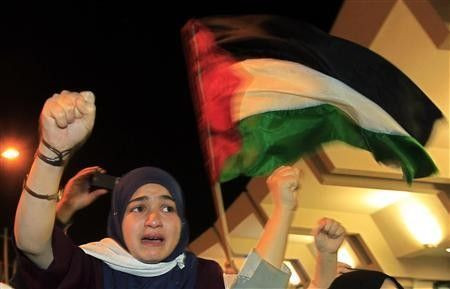Algeria promises more freedoms to avert protests

Algeria promised to end a 19-year-old state of emergency and provide more political freedoms on Thursday, concessions designed to keep out a wave of uprisings sweeping the Arab world.
The announcement by the energy exporting nation followed pressure from government opponents, some inspired by unrest in Egypt and Tunisia, who demanded the emergency powers be scrapped and are planning a protest in the capital on February 12.
Algeria's government had argued it needed the extra powers under the state of emergency to fight Islamist militants linked to al Qaeda but the insurgency has abated, sparking public debate about whether those powers are still justified.
The lifting of the state of emergency will happen in the very near future, official media quoted President Abdelaziz Bouteflika as telling a meeting of senior ministers.
This is clearly a response to the events in Tunisia and Egypt and an attempt by the Algerian authorities to get ahead of the curve and head off popular protests, said Benjamin Stora, a leading French historian on Algeria.
They would not have dreamed of lifting the state of emergency otherwise.
UNEMPLOYMENT
Bouteflika said the government should adopt new measures to promote job creation, a nod to the problem of unemployment which is particularly acute among young Algerians and helped trigger the uprising that ousted the president in neighbouring Tunisia.
The Algerian president also instructed that national television and radio stations -- which are controlled by the state and broadcast almost no voices of dissent -- give airtime to all political parties.
It is a step in the right direction, Algerian political analyst Mohamed Lagab said of the proposed changes. (It) shows that Bouteflika has understood how fragile the situation is.
However, Bouteflika make clear there would be a limit to the new political freedoms. Restrictions on marches in the capital will stay in force even after the lifting of the state of emergency, he said.
Bouteflika, who is 73 and serving his third term as president, issued a warning to opposition groups.
Freedom should not end in a situation where you have things sliding out of control or anarchy, which have already cost Algeria dear, he said.
The state of emergency was introduced in 1992, soon after the authorities annulled a parliamentary election which a radical Islamist party was poised to win.
That led to nearly two decades of armed conflict between Islamist insurgents and security forces which killed an estimated 200,000 people and from which the country, a major oil and gas producer, is still emerging.
There was no indication that the end of the state of emergency would mean that Islamist parties banned two decades ago would now be able to resume their activities.
Leaders of the planned February 12 protest march were meeting late on Thursday to decide if it would still go ahead.
Personally, I hope very much that this is not just another ruse by the authorities ... I think that instead of getting to the root of the problem the authorities are just playing for time, said one of the organisers, Fodil Boumala.
Some analysts say that Algeria is different from Egypt and Tunisia because its huge revenues from energy exports allow it to satisfy many of its citizens' economic grievances, especially at a time when oil prices are around $100 a barrel.
Early in January, several Algerian cities were shaken by rioting over food prices which killed two people and injured hundreds. Since then cut prices on staple foodstuffs and made massive wheat purchases to avoid any shortages.
© Copyright Thomson Reuters 2024. All rights reserved.





















